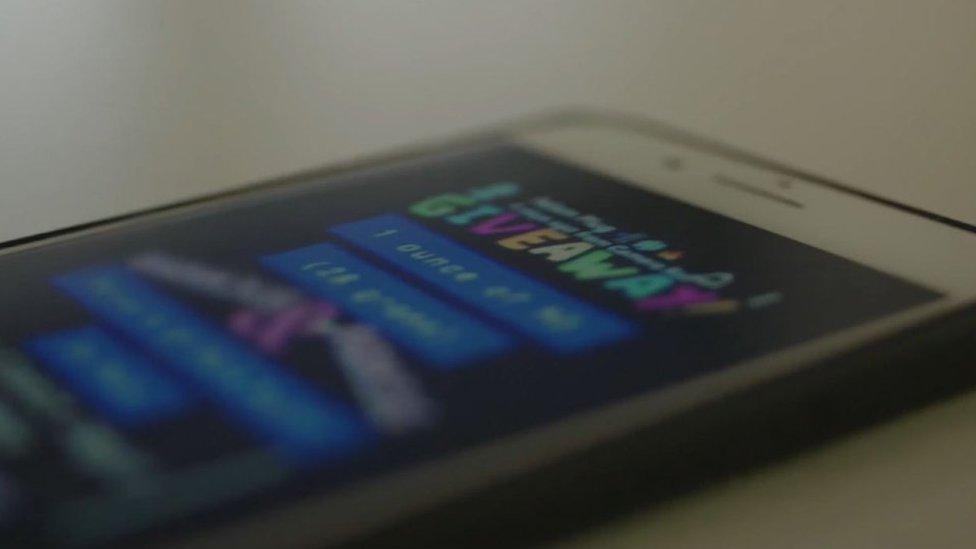Leeds Class A drugs delivered quicker than takeaway, BBC finds
- Published
Leo handed over MDMA and cocaine less than half an hour after being texted
How quickly can you get Class A drugs delivered in the UK? In Leeds, students say dealers with business cards can bring them cocaine and ecstasy in half an hour. But as I found out, it can be even quicker than that.
I sent the first text to the dealer at 19:35.
Twenty minutes later he replied. Seven minutes after that I was passing cash through a car window and being handed two small bags of drugs.
Getting hold of cocaine here is quicker - and easier - than ordering a takeaway.
And it all started because a dealer approached me and handed over a business card.
In the Hyde Park area of Leeds, you don't have to walk far before you're approached.
The pattern is repeated again and again: a car pulls up, a card is offered and the man inside promises everything from cannabis to cocaine.
"Coke, weed, MD, pills," says the dealer, speaking to me through the window of his white Mercedes. MD is shorthand for MDMA, or ecstasy as it's better known.
It's a quick handover. He's gone in 10 seconds, speeding off down a narrow terraced street - and I'm left with a card that has the name Leo printed on it, and a phone number.
The student targets
Student Luke, not his real name, has lived here for a few years now and says it's something that happens all the time - and at one point nearly every time he left his house.
"People [dealers] will usually just pull over in cars, with tinted windows and say something like 'do you guys do coke, do you guys do weed?' And if you say 'yes' they'll just give you a card," says Luke.
"I used to live down one of the busier roads, so leaving the house and walking to the shop there would be a lot of people around there handing out cards.
"It would happen a lot. If you went during the right times, it would happen almost every time you went down there."
With so many cards to hand, he found himself texting them a lot.
"It is so easy," he says. "You can just get it - half an hour, max. So all it takes is one impulsive 'right I'm going to do it' and then, half an hour later, it's there."
Leeds has a huge student population - nearly 65,000 people spread across its universities. And lots of them live in Hyde Park.
According to the Home Office, external, the number of 16-to-24-year-olds taking Class A drugs is at its highest since 2003. That's mostly driven by an increase in cocaine and ecstasy use.
There's a market here. And the dealers know it.
"In our student accommodation, we had post boxes and usually if you opened it to get your post there'd be cards in there," CJ says.
"So it wasn't like the first time someone pulled over in a car and handed you one, you'd never seen it before. They were already there."
The business cards
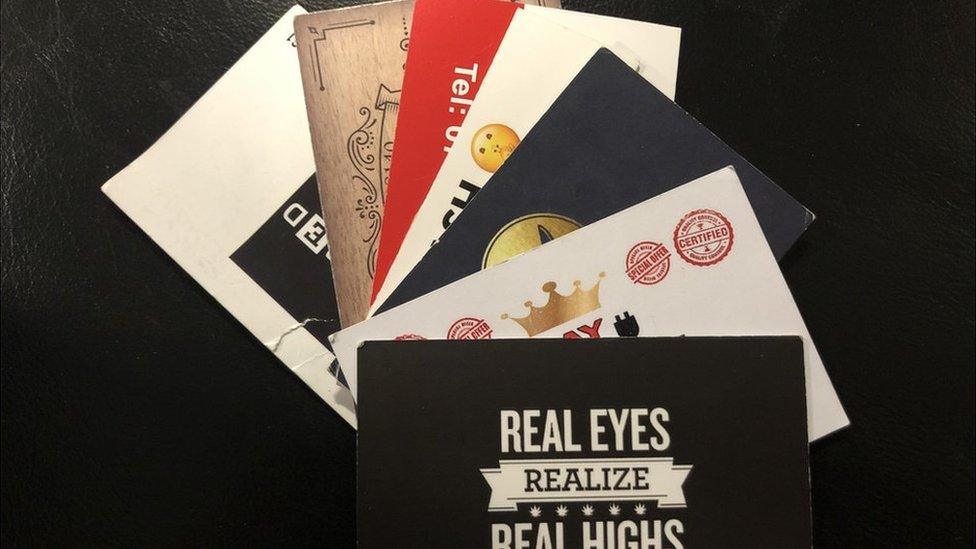
Some of the business cards being handed out in Leeds
I'm standing in Hyde Park when a man walks over and hands me a card. It has a name, a phone number and a "shh" emoji printed on it.
He's straight in with a list of what he can sell me - and even offers me a price cut if I order from him over one of his rivals.
"We've got loads of MD - £15 a gram," he says. "Everyone's doing it at £20, but I put it down at £15.
"I deliver it: drop-offs, everything. Just give me a text, yeah?"
I spend a few evenings walking around Hyde Park and get handed six cards. All of them are branded differently, seemingly all from different dealers.
The drop
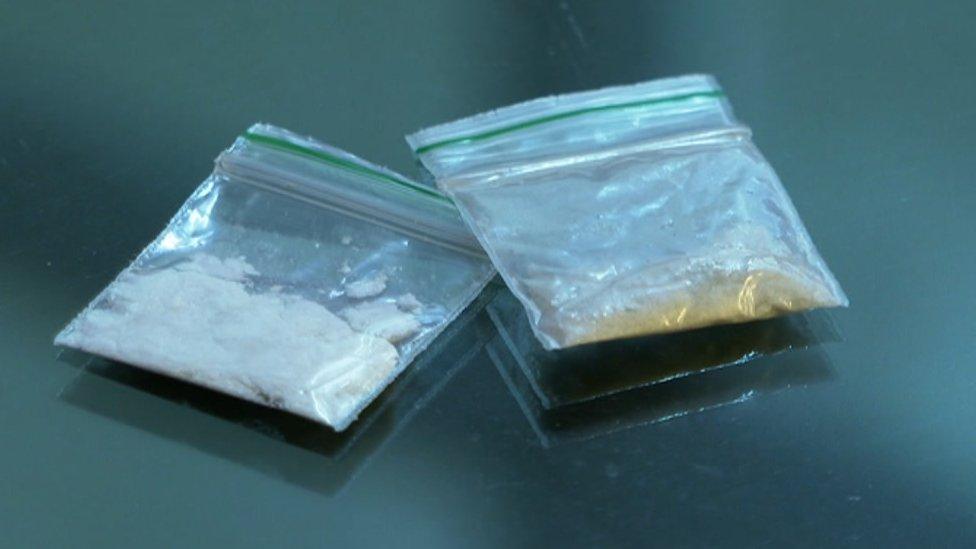
The bags of cocaine and MDMA sold by Leo
Leo, the guy in the white car, had said he could get me "coke, weed, MD, pills".
So I ask him for some.
I text Leo from a bar in Headingley, a Leeds suburb with a big student population about two miles up the road from Hyde Park, and keep my order simple: a gram of MDMA and half a gram of cocaine.
He agrees to come to me and doesn't hang about, pulling up on a street outside the bar just seven minutes after answering my text.
"I'm round here all the time," Leo told me when he first handed over a card.
He looks like a busy guy. After delivering to me, he appears to make two other drops in the same spot that night.
The lab
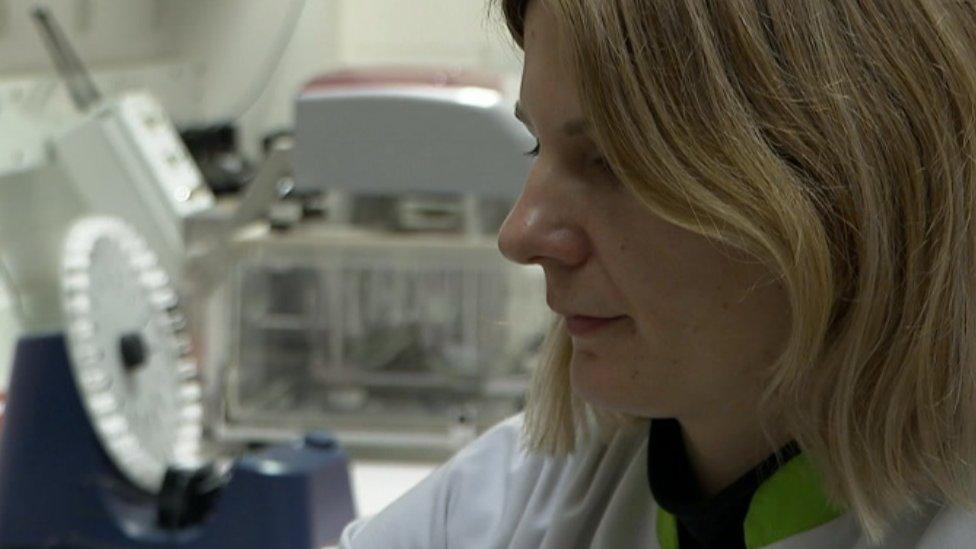
Anca Frinculescu from TICTAC Communications
But are Leo's drugs what he says they are?
People ordering cocaine from a business card in Hyde Park don't have access to testing labs to check what they're buying. Luckily, for the purposes of this BBC Yorkshire investigation, I do.
TICTAC Communications helps prisons, the police and the Home Office to identify drugs. If you see a police warning about a high-strength ecstasy pill, chances are it was tested by TICTAC first.
Analyst Anca Frinculescu starts by weighing what we've brought. Both samples come in light.
Leo has short-changed us by about half a gram.
Next they go through a gas chromatograph-mass spectrometer (GC-MS) to check what's in there.
"It separates your sample," says Anca. "If you have more than one substance in your sample, I'm going to get different peaks."
The pattern of peaks on the results sheet looks like a seismograph after an earthquake. But in this case the position of the peaks represents different substances. There is a known pattern for cocaine, another for MDMA.
If anything else has been cut in then the GC-MS will show that.
The testing takes 20 minutes.
Both our samples are as advertised: MDMA and cocaine.
Do business cards make buying drugs easier?
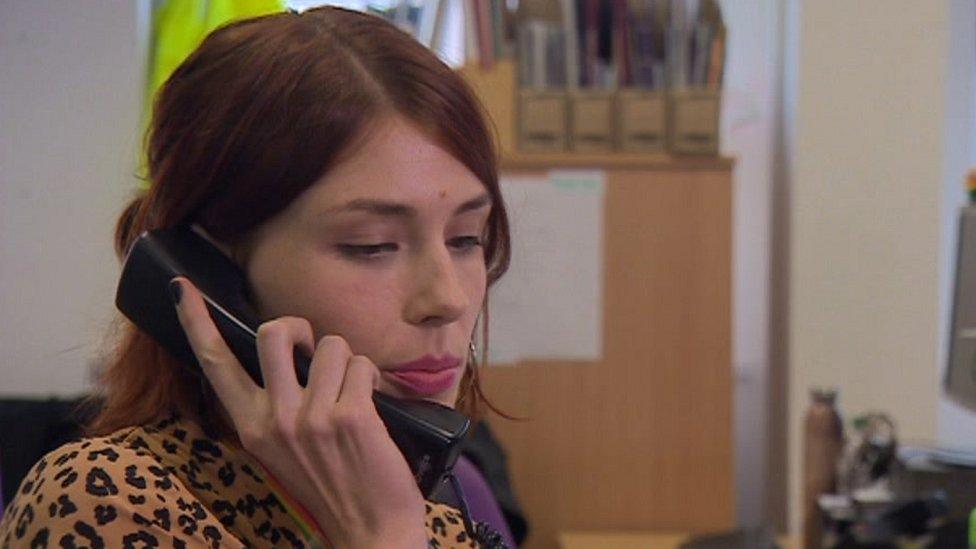
Drug support worker Nicola Lines fears drugs are becoming normalised
Forward Leeds, a local drug and alcohol addiction charity, is where Luke went for help.
Nicola Lines, who works for the charity, says business cards have made drugs more accessible.
"Historically if somebody wanted to obtain drugs it would definitely involve some sort of face-to-face interaction with a drug dealer, which some people find quite nerve-wracking," she says.
"So it kind of removes a barrier, the fact that you can now call a number... and then have a car come and deliver to your house in less than an hour.
"My fear is that drugs are becoming a lot more normalised."
The impact
Luke is two years behind in his studies. He puts a year of that down to mental health problems, exacerbated by drug use.
"It's very easy to feel awful all the time," he says. "And then to have something advertised to you as something that's going to make you feel happy.
"And you take it and it does, and it works - for six hours. And then it's a case of you're drinking more, you're taking more, because it makes you feel better at the time."
Luke was so low he attempted suicide. He's also been in and out of hospital and has needed support.
The drug were a response to his mental health problems, he says, but only "exacerbated it massively".
"One of the things that shocked me since I stopped is not how much better I feel physically, but how much better I feel mentally," he says.
What are the police doing?
West Yorkshire Police has a serious organised crime unit that it says proactively targets drug dealers "on a daily basis".
"The situation in Leeds is no different from any other city, where a minority of people very unwisely choose to put their health and wellbeing at risk by taking drugs," says Detective Inspector Phil Jackson.
"We have specialist officers who mount operations and painstakingly build up evidence on those involved, leading to convictions and lengthy prison terms, with a particular emphasis on so-called 'ring and bring' drug dealing phone lines.
"Alongside this work, officers from our local neighbourhood policing teams regularly act on community information about drug dealing and execute warrants to arrest and seize drugs on a daily basis.
"Educating young people around the dangers of drugs is also a key focus and we work closely with our partner agencies to that end."

Information and advice
If you or someone you know is struggling with issues raised by this story, find support through BBC Action Line.
- Published11 February 2020
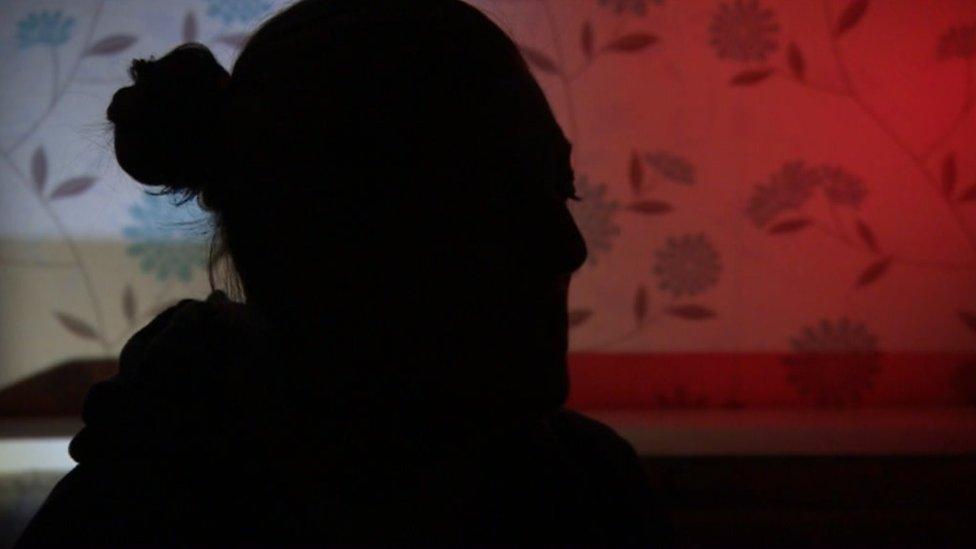
- Published20 January 2020
